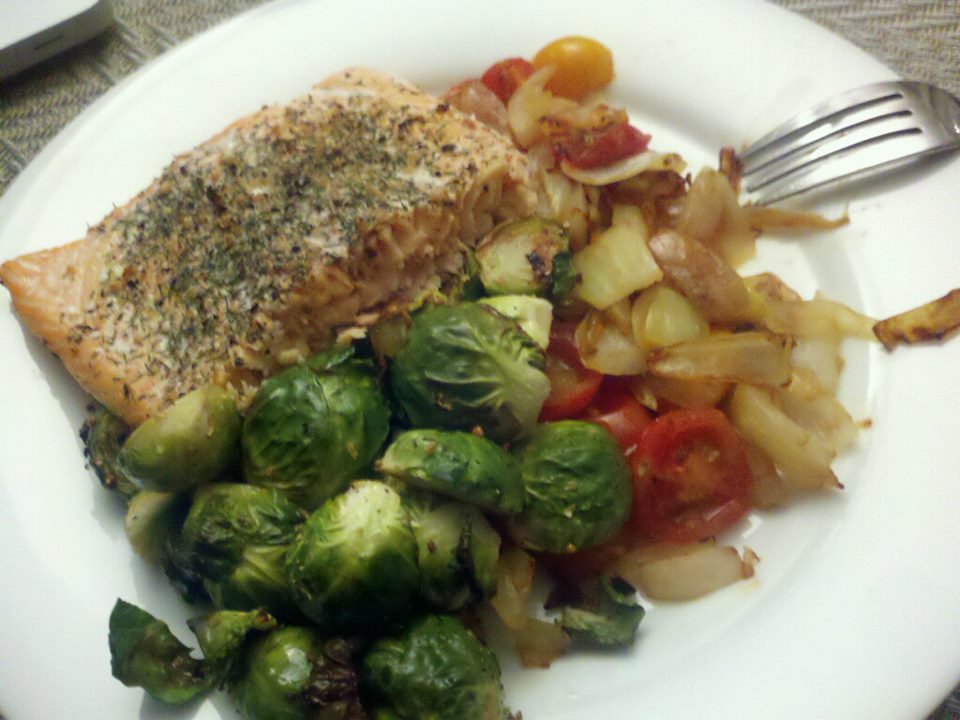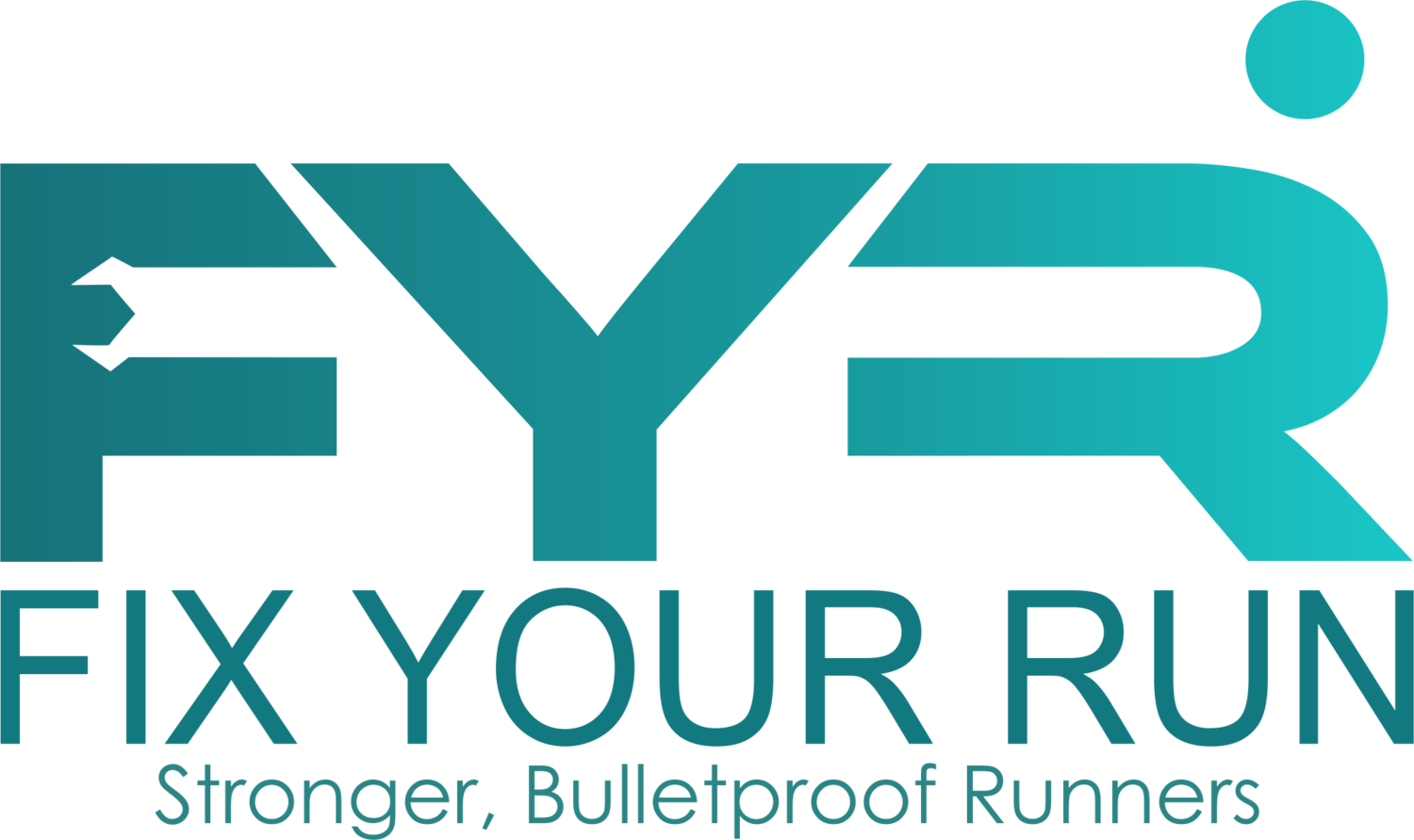Let's revisit the “I Know Syndrome”. "Oh, I eat healthy. I just can't seem to lose this flab!” (points to muffin top region)
Really? That's puzzling. Tell me how you start your day. What do you eat for breakfast?”
I have oatmeal every morning, and I...”
Hmm. I Know Syndrome strikes again. She assumes oatmeal is healthy, therefore it will help her burn fat. It sure is marketed that way. It's got the big ol' heart on the label proclaiming it reduces cholesterol. And perhaps it can play a role in improving her health. But is that really the best choice for her goal of fat loss?
More on that in a moment.
Meanwhile, I was browsing the ol' world wide web the other day. Specifically, I was looking at what running websites were putting out in terms of nutritional content. What sort of advice do they give out? Is it current – or do they perpetuate the same old school advice that people have heard for years?
Perhaps at some point you've considered running as a means to lose body fat. Well, if you're learning how to train and all you've consulted were running websites or people who ONLY provide a running perspective you'll probably hear little nuggets like the following.
Runner's World had an overwhelming amount of information, but most of it was very soundbite-ish. For example:
“Load up with healthy snacks, so you'll forgo the Hershey's Kisses on your coworker's desk. Try packets of cottage cheese, yogurt, low-sodium V8, almonds, baby carrots, and sugar-free puddings."
Kinda sounds like good advice, but sugar free puddings?? How does that enhance one's health exactly?
And then in response to whether to drink Diet Coke:
Katz suggests cutting back substantially. "Studies have shown that those who use artificial sweeteners tend to lose less weight than those who don't," she says.
Um. What? Don't drink diet coke, but DO have sugar free pudding? How do you suppose they get the pudding to taste sweet?!
Carbohydrates provide the fuel runners need. During half marathon training, 65% of your total calories should come from carbohydrates, particularly complex carbohydrates. 10% should come from protein (you need 0.5 to .07 grams per pound of your body weight each day). 20-25% of your total calories should come from unsaturated fats. Be sure to get the nutrition you need to keep you strong and allow for adequate recovery.” [thanks to marathonrookie.com]
Sound familiar?
That kind of nutrition plan MAY work great – for the carb tolerant, high mileage competitive athlete.
What about the more casual runner who runs 10-30 miles per week?
What about the endomorphic or mesomorphic runner with larger body frames?
And what if, say, you actually want to see some fat loss (not to mention health) results?? Well, then you want to try a different set of rules.
Use Carbs Strategically – After Workouts
Here's the ultra-simplified deal. To turn your body into a fat burning machine, you need to minimize the secretion of the hormone insulin. And to actually lose any flab you'll need to take in less energy (calories) than you use.
This particular hormone is released in response to the ingestion of sugar and starchy carbs. It regulates blood sugar. If you eat a couple of slices of  wheat bread, your blood sugar goes up. The body doesn't like to be out of balance so it lowers your blood sugar after about 15-20 minutes by pumping out insulin.
wheat bread, your blood sugar goes up. The body doesn't like to be out of balance so it lowers your blood sugar after about 15-20 minutes by pumping out insulin.
Problem: Insulin causes your body to store fat and stop burning fat.
If you continually provide your body with starchy or sugary carbs at most meals, you are killing your fat loss results. Since your muscles only have a limited capacity for carb storage, once the tank is full you'll convert those carbs to fat.
Fat Loss Strategy For Lower Mileage Runners Looking To Get Lean
1. Realize that your nutrition is 100% as important as your training. Some trainers will say that it's 75% or 80% and training is 20%. BS! They're both 100% critical!
2. Show up for each workout in a moderately carb-depleted state. You'll quickly burn through any stored carbs before accessing stored body fat. If you're always full of carbs, your body will always prefer to use them for fuel because they burn quickly. But if you don't have many carbs to draw on, then... success.
2a. Notice I didn't say ENERGY depleted. You absolutely need to eat to lose body fat. So generally don't start your workouts in a fasted state.
2b. This rule does not apply to anyone looking to run a race, hard long run, or set a personal best. Having a full tank of carbs enhances performance in longer races.
3. Eat fibrous carbs from veggies, lean protein and healthy fat for all meals except right after exercise. Eating fibrous carbs like vegetables will fill you up without the calories in more dense carbs like pasta.
4. Drink water. Then drink some more. 8 glasses a day? Weak sauce. That's great if you're sedentary. You're not. Get yourself a 20 ounce canteen and knock back 4-5 of those a day. Set a goal of 2 before noon. Water helps metabolic reactions (like, um, fat burning!) take place.
To recap: IF your goal is to lose fat, then you must avoid starchy/sugary carbs at all meals except for immediately after a training session. Got it?
Since I hate telling people what to avoid, I'll tell you what to focus on instead. Build your meals with vegetables, lean proteins, and healthy fats and wash it down with some green tea if you like. Super simple, eh?
If you just trained with intent and purpose, then add some watermelon, quinoa, beans, lentils, or sweet potato to the mix. And guess what? If you just crushed a hard long wintry run or race, have some hot chocolate! Sugar is ok at that time.
So we're not totally cutting out carbs, got it? Vegetables are carbs. Dig in! Rather, we are eating the right carbs at the right time.
I took the day off from exercise yesterday. My meal from last night? Salmon with steamed brussel sprouts, sauteed onions and heirloom tomatoes. Added a little lemon juice and yummmm! If I'd chosen a less fatty fish like tilapia I would have added 1/2 avocado.
Salmon with steamed brussel sprouts, sauteed onions and heirloom tomatoes. Added a little lemon juice and yummmm! If I'd chosen a less fatty fish like tilapia I would have added 1/2 avocado.
I know I've opened a can of worms here with the topic of nutrition. My point is to reveal the difference between advice commonly given to runners and general fat loss clients. If you have questions about what a lean protein is, or what a healthy fat is, let's talk.
And heads up: Precision Nutrition's Lean Eating program opens on January 4. Several people I know personally (including my wife, Jen) have been through the program and their life has changed for the better – check it out! Plus, they have some awesome free stuff on their website that you can take and run with right now.
*Obligatory Disclaimer: This topic is quite vast and I'm skimming the surface here. And of course none of the following is intended to treat any disease or medical condition! Each person is an individual and may likely have different needs...


